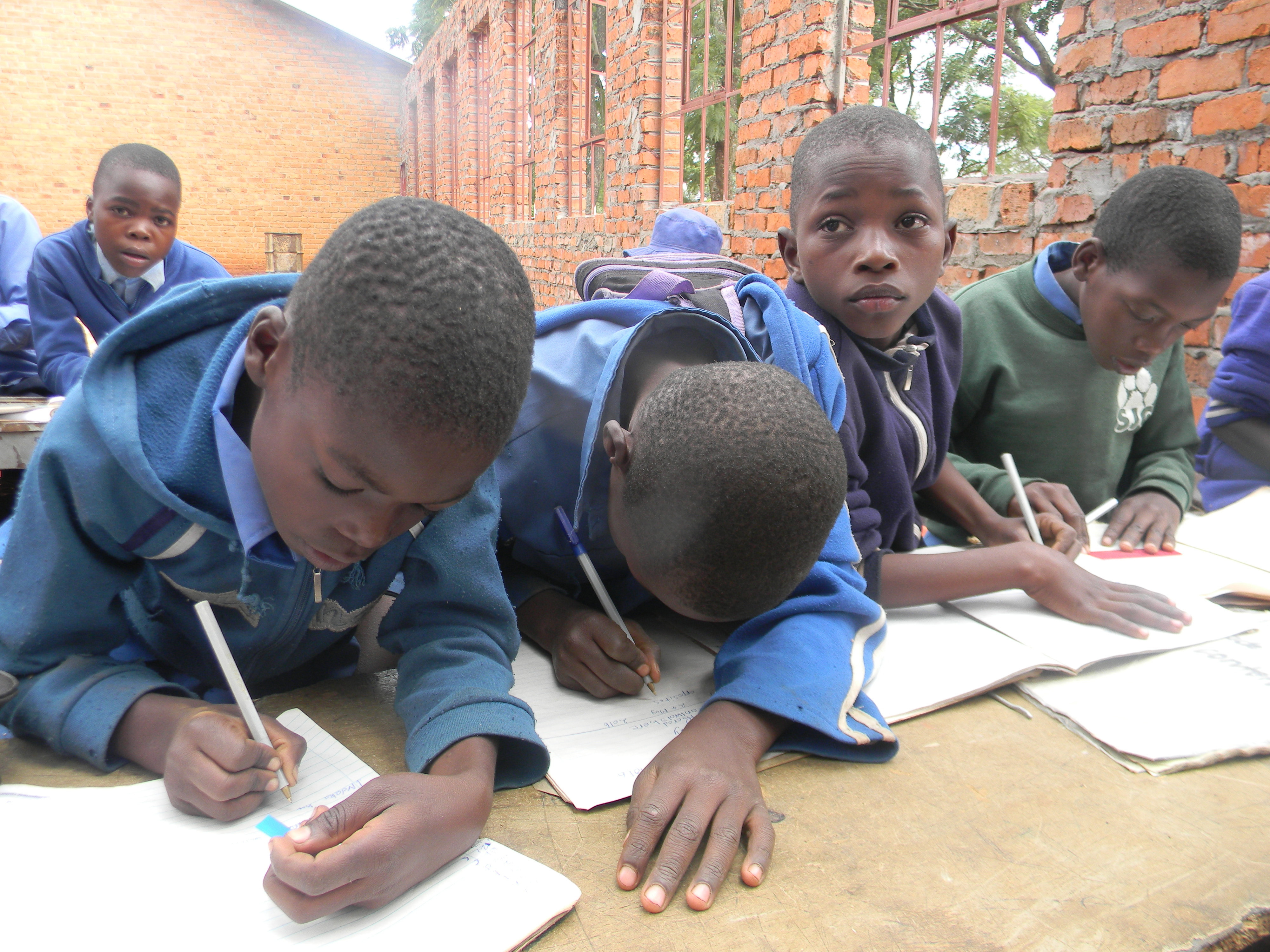Education
‘Education standards have dropped’

A group of young Zimbabwean primary school kids seated outside a classroom whilst writing in their exercise books.
© ShutterstockGERMAN Counsellor and Deputy Head of Mission in Zimbabwe Michael Ott has said the quality of Zimbabwe’s education system is fast deteriorating.
“I have been here for a year in the country, unfortunately the education system in Zimbabwe has been going downwards, and I think that is a great danger because so far education is what has made Zimbabweans successful abroad. So I think that is one thing that we need to keep in mind and put into discussions,” he said.
Ott was speaking at the launch of a study by Friedrich Naumann Foundation last Friday on the impact of Chinese investments in Africa and their threat to democracy. The study, titled How China is Inverting Democracy Enabling Institutions in Sub-Saharan Africa, was done by Innocent Ncube, a lecturer at Queen Mary University of London’s School of Politics and International Relations.
He said Zimbabwe should leverage its resources to break away from the dependency syndrome.
“Zimbabwe is rich in minerals. You have resources; meaning whatever you want to do is possible. You have inter-trade. You can trade with other countries and that alone can help grow the country,” he said.
“I come from a country that depends largely on foreign trade. You talk a lot about resources in Zimbabwe, you have to sit down and think of the journey you want to take, l mean you have the minerals. Investments by different countries are always looking for their own advantages. The capacity to negotiate is something that is crucial so I would be careful.
“If you talk about China's policy of not interfering with internal affairs, my interpretation of that is they are willing to accept corruption in the country and l think that is something all companies need to be conscious of,” Ott added.
Analysts at the launch of the study have, however, questioned Chinese intentions, which they say were meant to influence the geopolitics of the continent. China has investments in 90% of Africa, where it has constructed or refurbished 15 Parliament buildings.
Ncube said the significant takeaway for policymakers was that China has emerged as a critical player in (re)shaping domestic political institutions in Africa. In the study, he also recommended agencies that support the development of inclusive political institutions in Africa to invest in research.
“Integrate China into mainstream parliamentary strengthening programme planning to limit the negative effects of its unilateral support to parliaments and enable a collaborative effort in supporting African parliaments,” the study encourages.
“Invest in developing resilient democratic institutions - such as political parties, independent media and civil society - that can be a counterfoil to China's authoritarian political influences.” As the biggest lithium battery manufacturer, China has interests in minerals in Africa. Lecturer at Africa University’s Department of International Relations and Diplomacy Eve Nyemba, who was one of the panelists at the launch, said Zimbabwe and the rest of Africa should build its institutions since they have the resources and capacity to do so.
“Africans should use their soft power to build their institutions. l think Africa has the resources to build its institutions. Raw materials are abundant,” she said.
“China is destroying local industries. The city centre is now a big flea market due to textiles from China. Mining is no longer beneficial because the civil society is not involved in negotiation seats, and China manufactures finished goods and sells them to Africa at higher prices than we sell our raw materials.”
Nyemba added that there was need for Zimbabweans to decolonise their mind lest they remain dependent on China.
“Citizens need to question the government’s role in development,” she said.
By Julia Ndlela, Zimbabwe Independent